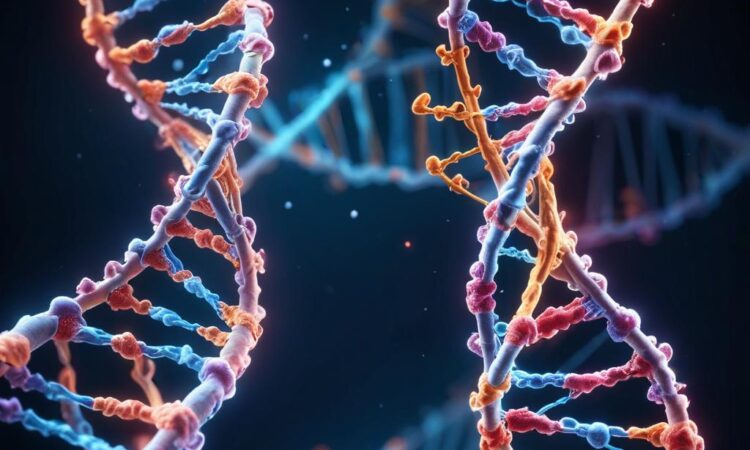Biotechnology and Gene Editing: Ethical and Scientific Considerations
The advent of gene editing technologies, particularly CRISPR-Cas9, has revolutionized our understanding and manipulation of the very building blocks of life. These powerful tools hold immense potential for addressing a myriad of challenges in medicine, agriculture, and beyond. However, their transformative nature also raises profound ethical and scientific questions that demand careful consideration.
CRISPR-Cas9: A Game Changer in Gene Editing
CRISPR-Cas9, a revolutionary gene editing system derived from bacterial immune systems, allows scientists to precisely target and modify specific DNA sequences. This unparalleled precision has opened doors to previously unimaginable possibilities, enabling targeted gene corrections, disease prevention, and the development of novel therapies.
Applications in Medicine
The medical applications of CRISPR-Cas9 are vast and far-reaching. Its ability to correct genetic defects holds promise for curing currently incurable diseases, such as cystic fibrosis, sickle cell anemia, and Huntington’s disease. Gene editing could also be used to develop personalized cancer therapies, enhance immune system function, and prevent the transmission of genetic disorders.
Treating Genetic Diseases
One of the most promising applications of CRISPR-Cas9 lies in treating genetic diseases. By targeting and correcting faulty genes, gene editing could potentially eradicate or significantly alleviate the symptoms of these conditions. Clinical trials are underway to investigate the efficacy of CRISPR-Cas9 in treating a range of genetic diseases, offering hope for a future where these debilitating conditions become a thing of the past.
Developing Personalized Cancer Therapies
Cancer is a complex and multifaceted disease with a wide range of genetic variations. CRISPR-Cas9 can be used to develop personalized cancer therapies by targeting specific mutations associated with individual tumors. This personalized approach could lead to more effective treatments with fewer side effects.
Enhancing Immune System Function
Gene editing could enhance the immune system’s ability to fight infections and diseases. Researchers are exploring the use of CRISPR-Cas9 to modify immune cells, making them more effective at recognizing and attacking pathogens. This could revolutionize the treatment of infectious diseases and enhance the effectiveness of vaccines.
Applications in Agriculture
Beyond its medical applications, CRISPR-Cas9 is also transforming agriculture. Gene editing can be used to enhance crop yields, improve nutritional content, and create pest-resistant varieties. This technology holds the potential to address global food security challenges and sustainably increase agricultural productivity.
Enhanced Crop Yields
By modifying genes responsible for growth and yield, CRISPR-Cas9 can help increase crop yields. Genetically engineered crops can be more resistant to environmental stresses, such as drought and salinity, resulting in higher productivity even in challenging conditions.
Improved Nutritional Content
Gene editing can also be used to improve the nutritional content of crops. For example, CRISPR-Cas9 could be used to increase the levels of essential vitamins and minerals in staple crops, improving the nutritional value of food for millions of people worldwide.
Pest-Resistant Varieties
CRISPR-Cas9 can be used to develop pest-resistant varieties of crops, reducing the need for pesticides and minimizing their environmental impact. Genetically engineered crops with pest resistance can contribute to sustainable agriculture and protect biodiversity.
Ethical Considerations
The transformative potential of gene editing technologies is undeniable, but it also raises significant ethical concerns. The ability to alter human DNA raises questions about human evolution, genetic discrimination, and the very nature of life itself.
Human Evolution
Gene editing has the potential to alter human evolution, raising questions about our responsibility as stewards of life. Some argue that gene editing could be used to enhance human traits, creating a new generation of genetically superior individuals. This raises concerns about genetic inequality and the potential for societal division based on genetic enhancements.
Genetic Discrimination
The availability of gene editing could lead to genetic discrimination. If individuals are identified as having certain genetic predispositions, they might face discrimination in areas like employment, insurance, and social acceptance. The potential for genetic profiling and its implications for individual privacy and social justice require careful consideration.
The Nature of Life
Gene editing raises profound questions about the nature of life. The ability to modify the very building blocks of life raises concerns about the sanctity of human life and the potential for unintended consequences. The ethical implications of altering human DNA require a nuanced and comprehensive approach, taking into account the diverse values and perspectives of society.
Scientific Considerations
Beyond the ethical considerations, there are also scientific considerations surrounding gene editing. The technology is still relatively new, and there are ongoing debates about its safety, efficacy, and long-term implications.
Safety and Efficacy
While CRISPR-Cas9 has shown remarkable promise, there are concerns about its safety and efficacy. Off-target effects, unintended changes to the genome, and the potential for long-term consequences require further investigation. Rigorous scientific research and clinical trials are crucial to ensure the safety and effectiveness of gene editing technologies before they are widely implemented.
Long-Term Implications
The long-term implications of gene editing are still largely unknown. The potential for unintended consequences, both in the short and long term, requires careful consideration. Research into the potential ecological and societal implications of gene editing is essential for responsible innovation.
Regulation and Governance
The ethical and scientific considerations surrounding gene editing necessitate a robust regulatory framework. Clear guidelines and oversight are essential to ensure responsible development, application, and use of these technologies.
International Cooperation
Gene editing is a global issue requiring international cooperation. The development and use of these technologies should be guided by shared principles and ethical guidelines to ensure responsible innovation and equitable access.
Public Engagement
Public engagement is crucial for responsible gene editing. Open and transparent dialogue about the ethical and scientific considerations is vital for building public trust and ensuring informed decision-making.
Conclusion
Gene editing technologies like CRISPR-Cas9 hold immense potential for transforming medicine, agriculture, and our understanding of life itself. However, the transformative nature of these tools also raises significant ethical and scientific considerations. Responsible development, regulation, and ongoing research are essential to ensure that gene editing is used for the betterment of humanity while safeguarding our shared values and the future of life on Earth.

